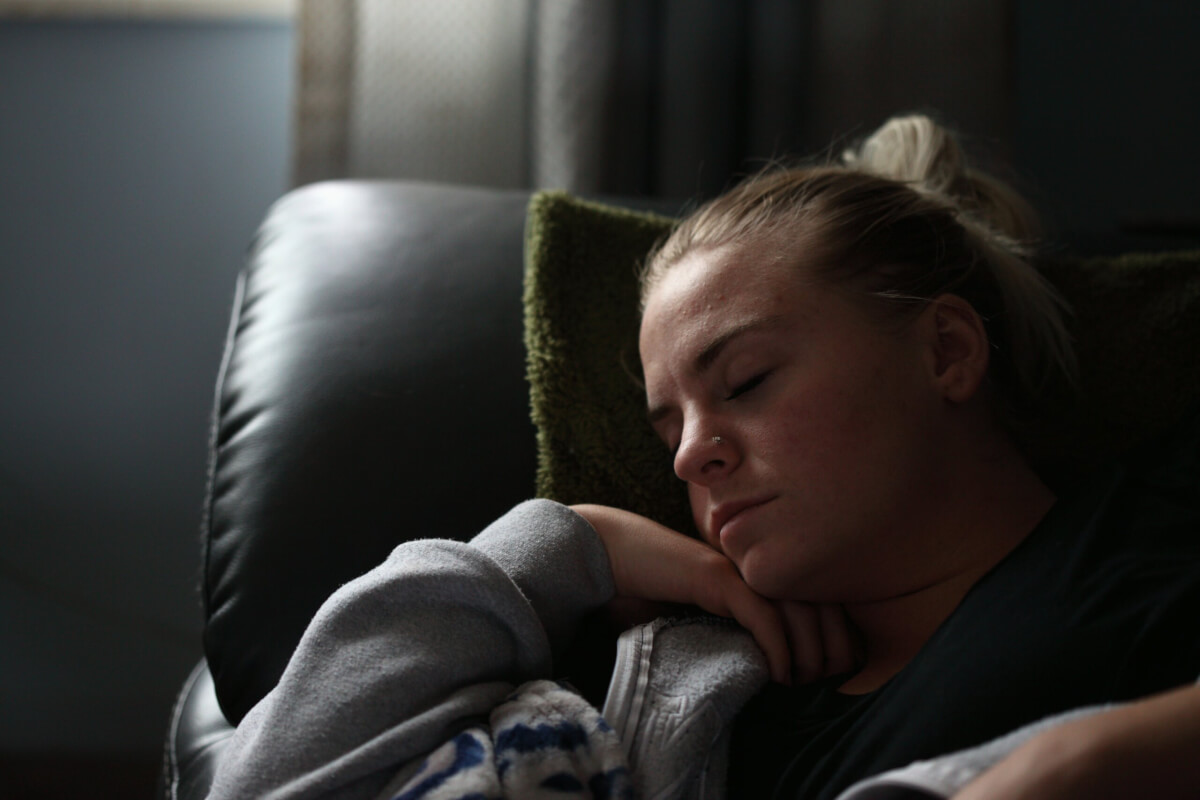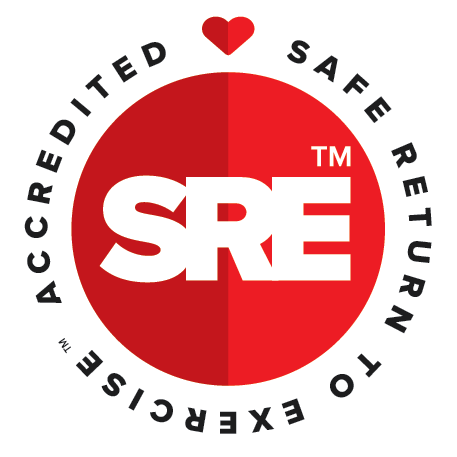Postnatal Depletion

What is Postnatal Depletion?
The term postnatal depletion was first coined by Dr. Oscar Serrallach in his popular book, The Postnatal Depletion Cure.
Also known as postpartum depletion, the term refers to the combination of physical, hormonal and emotional depletion that a mother can experience after giving birth.
Postnatal depletion is a physical and mental deterioration caused not just by the process of giving birth and breastfeeding, but by the stresses and strains of modern parenthood.
Serrallach describes it as a syndrome of accumulated issues including deep fatigue, hyper-vigilance and a feeling of being overwhelmed.
Postnatal depletion usually raises its head during the first year ( the postpartum period) when women are still recovering from childbirth (and growing a baby for the last 9 months) and attempting to keep up with the new demands of motherhood.
The condition basically zaps your energy just when you need it the most, leaving new mothers feeling completely exhausted and overwhelmed.
Postnatal depletion is an extremely common condition, we just really haven’t spoken about it. However, it has now become more commonly known. In fact, Dr. Oscar Serrallach believes that over 50 per cent of mothers suffer from some degree of postnatal depletion.
Is postnatal depletion a recent condition for women?
While pregnancy and the postpartum period have always been nutritionally demanding on mothers, Dr. Serrallach suspects that our busy modern lifestyles have a lot to do with the rise in the condition.
In western culture, the rising average age of new mothers means that women are taking longer to recover from pregnancy and birth while increasing pressure on mothers to ‘do it all’ sees many women juggling an overwhelming number of responsibilities with a distinct lack of postnatal support.
Add on a nutritionally deficient diet (we just grab any food that we can in between looking after a new born) and mothers are finding themselves in a more depleted state than ever before.
This depletion can lead to poor immune function and poor gut health for years after we give birth.
One of the more important points the book makes is that we can’t address this depletion in mothers just by an organic diet, massages and the right vitamins. We need a more societal, systemic approach.
Is society at fault?
As a society we are extremely bad at supporting parents of young children. There are all the appointments when you are pregnant and the follow ups after birth but the main focus is mainly on the baby. Although in recent years, the Maternal child and health care practitioner will give you a questionnaire, to see if you may suffering from post-natal depression (please be aware that post-natal depletion and post-natal depression are two very separate entities). However, when I look at the holistic approach, it seems to me that postnatal depression can be a result of postnatal depletion, and a lack of support from the community in which new parents are left to their own devices.
This is not like the traditional village days where the whole village took care of the children, supporting the parents. Nowadays, parents have 2 weeks off and go back to work. Or you get the year off and then return to work, in my case, I needed to return to work at 6 months, which I think in hindsight, enhanced the post-natal depletion cycle.
The lack of support, sleepless nights, interrupted sleep and trying to keep going also puts mental and emotional strain on women and men. Which is compounded even more as a single parent. Yet in today’s society, you hear “buck up, get on with it” which leaves many women feeling alone, unsupported, drained and wondering what they can do. They may even feel as though being a parent is a thankless job.
Can you treat it and how long does postnatal depletion last?
Postnatal depletion can be treated but its more than just throwing vitamins, supplements and nutrition at new mums and parents. It involves a well-rounded approach. It requires support from the community, scheduling in rest periods / times, making sure you are getting enough nutrients and asking for help.
If a new mum isn’t allowed to fully recover from the demanding requirements of pregnancy and birth, the aftereffects can last for years. I’ve treated women who were still depleted ten years after their babies were born.
Everyone’s experience of postnatal depletion is different and some women may deal with the condition for longer than others.
Typically, mothers begin feeling the first effects of postnatal depletion in the months after giving birth and gradually start feeling better as their nutrition and sleep improves. But for some women, postnatal depletion lasts much longer and it’s possible for the condition to hang around for up to 10 years after giving birth. While that might sound scary, postnatal depletion is relatively easy to treat with the right tools and information.
What can you do to assist with postnatal depletion?
- Rest when you can. If you can’t sleep when the baby / toddler is sleeping then sit on the couch and try to close your eyes. Watch some TV – but I want you to have a break while your little one is resting. Put your feet up, this is a break time for you! And YOU NEED IT!!! I made it the quiet time for my daughter when she younger. I would allow her to watch 3 episodes of Thomas the tank engine and I would sit on the couch with her and “watch it” with her. Essentially, I was micro napping.
- Take a prenatal / multivitamin – to make sure that you are getting more nutrients in your diet.
- Move (gentle stretching, walking, yoga) or if baby is napping and you have energy, put the TV on and walk in front of the TV.
- Get out in nature. Place a blanket on the ground and go outside – nature is soothing and will help with stress, it helps to calm the body down.
- Breathe deeply as this oxygenates your body and provides essential oxygen to the body, helping with blood circulation.
- Create some time for you. My husband and I had an agreement – if the day had been too much – I would text him and say “as soon as your home, I need to leave” and I would spend an hour away from the house – I may go for a walk, get a hot chocolate / take a book with me and read. It was time I needed to recoup myself and just have some time away from the stress and rigors of being a mum – it was a time to reset myself and allow myself to be me – not a mum, not a partner, not a lover – just be me for an hour.
- Seek support. Make sure that you are looking after yourself as well, you can seek support from allied health, massage therapist, TCM practitioner. You also need to look after your mental and emotional health and your physical body. For myself with both girls – I had to attend a number of appointments for them – I was busy running around trying to get them what they needed but we also need to support ourselves.
Postnatal depletion from a Chinese Medicine perspective
We are all about building up the body, replenishing the depletion – both physically, mentally, and emotionally. We use a combination of Acupuncture and herbs that help with digestion, energy, making blood, assisting with mental fogginess and emotions.
Acupuncture sessions enable you to have time for you. You get to have a nap while the needles are in and it also gives you something to look forward to. It is YOU time.
When we are so depleted we need all the help we can get. In order to build you up, we may require you to be on herbs for a year or so, to assist with replacing all that has been depleted and to rejuvenate you.
As soon as baby is born, the Chinese, start with replenishing lost energy by giving mums congees, and bone broths soups.
Using a combination of all of the above as well as diet, timeout and also allowing yourself time out to rest can assist with postnatal depletion.
Please be aware that postnatal depletion is now more prevalent than ever. We all need to help all new parents by providing a community in which we can help support each other to ensure that postnatal depletion doesn’t take over. To all the parents reading this, please make time for yourselves. Please make a date night so that you have time away from children, this is not selfish and it is much needed time out for you to replenish your energy, your self and then have enough energy and reserves to be a present parent.
References
- https://www.ncbi.nlm.nih.gov/labs/pmc/articles/PMC6661702/
- https://pubmed.ncbi.nlm.nih.gov/33230681/
- https://www.mayoclinic.org/diseases-conditions/postpartum-depression/symptoms-causes/syc-20376617
- https://aifs.gov.au/facts-and-figures/births-in-australia
- https://www.mdpi.com/2072-6643/11/12/2891/htm
- https://pubmed.ncbi.nlm.nih.gov/29296279/
